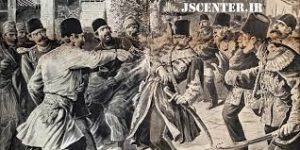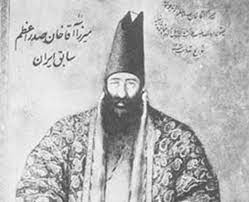The thesis that Qajar government prevented the development of Babism movement by repressing the Babis may not be right to some extent. Because Babsim changed into a means for political settlement inside the government due to the inside supports of some governmental elements.

Although Qajar government is being recognized as the repressor of Babism movement, but some people in the government have help expand Babism movement willingly or unwillingly!
Ali Muhammad Shirazi who was influenced by Sheikism creed and misused false thoughts of Sheikism creed posed Babism claims. At first, he turned against all of his claims after being arrested by Fars ruler. He rejected all of his claims and followers in Shiraz mosque: “… May God damn the one who calls me the lawyer of the absent Imam (A.S.). May God damn the one who considers me as Imam’s gate. May God damn the one who assumes me as the denier of the Excellency messenger’s prophethood. May God damn the one who considers me as the denier of divine prophets. May God damn a person who assumes me ass the denier of the Imamate of the commander of the faithful and other holy Imams[1].”
This premature regret of Ali Muhammad Bab caused many of his followers to turn against him, according to the Baha’i texts[2]

However; maybe, one of the factors which caused Babism movement to expand in some regions of the country is the role of Qajar statesmen in developing it.
On the other hand, it can be said that some Qajar statesmen played a key role in strengthening and developing this movement.
Ali Asghar Shamim, the Iranian master of history, translator author, and historian writes in this regard: “This issue (Ali Muhammad) was nothing but a religious claim at first. Nevertheless, paying much attention to this issue by the statesmen of that era particularly by Mo’atamedudduleh changed it to a remarkable political and social issue…[۳]”

Consequently, Manuchehr Khan Mo’tamed-al-Dulleh Gorgi (Isfahan ruler), Mirza Aghasi, the chancellor and Mirza Agha Khan, the chancellor were high-ranking authorities who played a key role in this regard.
Thus, the thesis that Qajar government prevented the development of Babism movement by repressing the Babis may not be right to some extent because Babism changed into a means for political settlement inside the government due to the inside supports of some government elements.
[۱] Ishraq Khawari, Mataleul Anwar (the summary of Nabil Zarandi’s history), the national institute of the faith press, Bita, p. 132.
[۲] Ibid, p. 135.
[۳] Ali Asghar Shamim, Iran during Qajar kingdom, Tehran: Elmin publishing house, 1371 S.H., p. 152.






